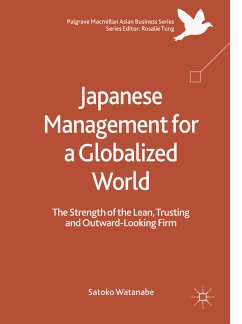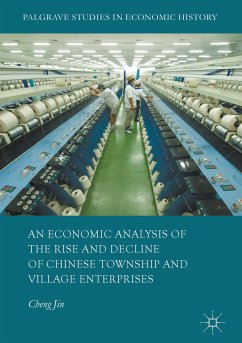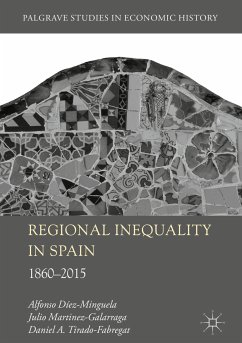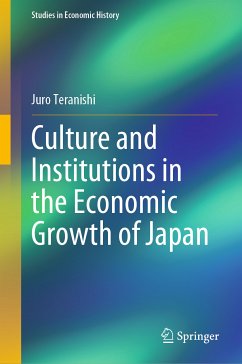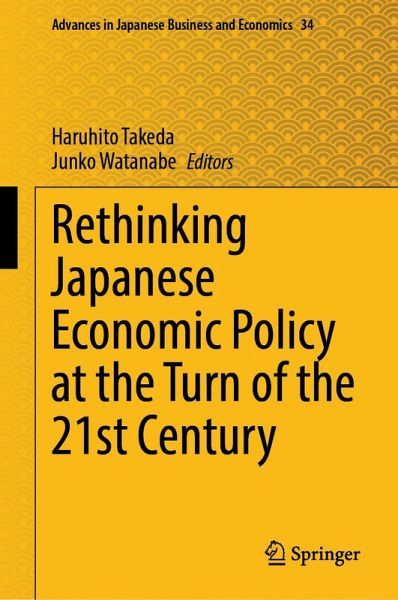
Rethinking Japanese Economic Policy at the Turn of the 21st Century (eBook, PDF)
Versandkostenfrei!
Sofort per Download lieferbar
144,95 €
inkl. MwSt.
Weitere Ausgaben:

PAYBACK Punkte
72 °P sammeln!
This book, focusing on the Japanese economy mainly from the 1990s to the 2010s, examines the Japanese industrial and fiscal-monetary policies and evaluates its achievements and limits from a historical perspective. Although the period that was also referred to as the "lost decade (or two, three decades)" was marked by various policy discussions, there are still few studies that summarize them as a history. Another unique feature of this publication is that it includes the contributions not only from researchers, but also from those who are/were in a position close to the policy makers. By reth...
This book, focusing on the Japanese economy mainly from the 1990s to the 2010s, examines the Japanese industrial and fiscal-monetary policies and evaluates its achievements and limits from a historical perspective. Although the period that was also referred to as the "lost decade (or two, three decades)" was marked by various policy discussions, there are still few studies that summarize them as a history. Another unique feature of this publication is that it includes the contributions not only from researchers, but also from those who are/were in a position close to the policy makers. By rethinking this era, many Japanese not just researchers and policy makers will be motivated to move toward a new era. Many of the chapters in the book are based on the primary sources not found elsewhere, including the interviews with policymakers and collection of policy documents, in addition to the authors' own analysis, views, and findings. They attempt to describe policymakers' struggles to exit from the long-term recession after the collapse of the bubble economy, seeking to get back on the trajectory for economic growth. The readers will gain new factual perceptions and discoveries from these historical contexts. The issues presented in this book will also contribute to the international understanding of policy efforts in Japan, which is facing a frontier with high uncertainty. Japan's experience and its challenges are common in many aspects to developed countries now and in the future.
Dieser Download kann aus rechtlichen Gründen nur mit Rechnungsadresse in A, B, BG, CY, CZ, D, DK, EW, E, FIN, F, GR, HR, H, IRL, I, LT, L, LR, M, NL, PL, P, R, S, SLO, SK ausgeliefert werden.



